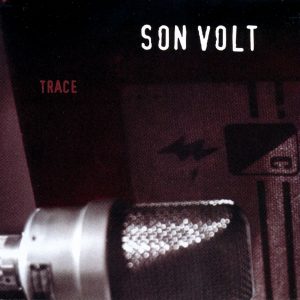
When Jay Farrar sings, “May the wind blow your troubles away,” on ‘Windfall’, about a long-distance drive to escape one’s problems and the opening track of Son Volt’s 1995 debut album, ‘Trace’, it came across like a hopeful sentiment of looking forward for the talented songwriter following the tragic implosion of Uncle Tupelo, his first band with Jeff Tweedy. The album was Farrar’s first since the ugly dissolution of Uncle Tupelo the prior year. In addition to the ugly, personal drama, and turmoil that led to the end of the seminal-band, the release of ‘Trace’ carried with it an unmatched burden of expectations. Those expectations weighed not only on Farrar, but also on former bandmate Tweedy. Every move they made in the months following the end of Uncle Tupelo was preceded by the question, “What does the after-life following the breakup look like for both Farrar and Tweedy and how do you follow up the genius that was Uncle Tupelo?”
Uncle Tupelo was not simply a good band, they were a genre-defining, once-in-a-generation type band. When you think of Americana music – the notion of a contemporary music that incorporates American roots-music styles, blues, bluegrass, string-band, folk, acoustic, and delivers it in a modern setting, often with a full-electric band – Uncle Tupelo is the perfect representation of it. They effortlessly melded an aggressive punk-edge, softened by a countrified-vibe and were unafraid to proudly wear influences as diverse as the Carter Family, Hank Williams, the Minuteman, and the Replacements.
As with the Beatles or the Rolling Stones who have long been part of our musical consciousness, it is easy to take for granted what Uncle Tupelo accomplished. For Uncle Tupelo, while they were never as popular or well-known as those famous predecessors, they did help craft a sound that seems so familiar and commonplace now, that you almost forget that someone had to play music like that first. Like the Stones and the Beatles they began with a simple concept and crafted something that became utterly recognizable as a number of derivative bands followed in their large, influential wake. They are the fulcrum between Americana’s predecessor country-rock and everything that came after. At the time they were more likely called alt-country (as they rose to prominence in the alternative nineties when everything was alt-something). The music they made was born from the roots of American music; it was Americana. While that term had been used in some context since the 19th century, it had not really been used in a modern-music sense until the mid-eighties, and did not really take flight until Uncle Tupelo and the nineties rolled around. At their core you could simply say they were an acoustic-punk-trio with an interest in traditional music. But that does not do justice to what they created. They were so much more than that simple description. Uncle Tupelo is patient zero for the modern Americana scene, paving the way for bands like the Bottle Rockets, Old ‘97s, the Drive-By Truckers, Whiskeytown, and so many more. Hell, their debut album ‘No Depression’ even provided inspiration and lent a name for the genre’s flagship magazine.
Uncle Tupelo allowed us to truly define what modern Americana is, to retroactively look backwards and label bands from prior generations as such and allowed us to understand the idea of alt-country or the modern use of Americana. They began to incorporate roots-based music into what they did, but with a modern edge and delivered in such a way as to push forward the rich tradition of those styles. Many of the bands they looked to for inspiration were lumped under the quaint title of folk-rock or country-rock, but those descriptions fall short of describing the energy and grit of Uncle Tupelo and encompassing what they were doing musically.
With the weight of Uncle Tupelo and the expectations that brought with it weighing around both Farrar and Tweedy’s neck they both prepared for life post-Tupelo. There was even more pressure on Farrar as Tweedy’s first album with his new band, Wilco, the rushed release ‘A.M.’, was met with mixed reviews and indifference. This led many to question the two individual songwriters. Could they recreate the magic they had found in Uncle Tupelo on their own?
All of that begs to ask the question, why not write about any one of Uncle Tupelo’s legendary albums and call it a day? Because, with the albatross of expectations hanging over Farrar, he released ‘Trace’ six months after ‘A.M.’, and it proved to be more than just a good solo album. History is littered with bad solo albums that followed ugly band breakups up, and ‘Trace’ is anything but. It was an immediate classic that proved itself to be a more than worthy successor to the legacy of Uncle Tupelo. With its pounding guitars balanced by simple acoustic strums, ‘Trace’ is the logical extension of Uncle Tupelo and seemed to validate Farrar as the genius of the influential band. (Of course with the formation of Wilco and the release of the ‘A.M’ follow-up ‘Being There’ and everything that came after, the question of who was the real genius in Uncle Tupelo is not so clear). The eventual evolution of Wilco still takes nothing away from the greatness of ‘Trace’ though.
While the rest of Farrar’s catalogue has been uneven, there is nothing uneven about ‘Trace’. In the grunge dominated first half of the nineties that saw college radio and indie labels like Sub-Pop, Touch & Go, Merge, and Matador dominate as they pumped out bands that were miles away from Son Volt’s thoughtful take on American roots as viewed through an alternative lens, the music Farrar made never felt out of place. The irresistible ‘Drown’ was even a minor hit on those same college airwaves. It could regularly be heard blasting out of dorm room windows alongside indie-bands like Pavement, Urge Overkill and the like without sounding out of place.
From the hushed, contemplative-optimism of the album-opening ‘Windfall’, to the breathtakingly gorgeous ‘Tear Stained Eye’, through the naked aggression of ‘Catching On’, ‘Trace’ is eleven tracks of musical perfection. Even the album-closing take on Ron Wood’s drunken-yacht-rock-drawl of ‘Mystifies Me’ seems perfectly placed and right at home. The inclusion of it shows just how much Farar had grown in the few months since the end of Uncle Tupelo as it would have seemed blasphemous then to have found ‘Mystifies Me’ nestled alongside the rest of the more earnest, traditional covers that Uncle Tupelo mined. Farrar’s stripped, down heartfelt rendition of the song oozes with sincerity and certainly found a home on every mix-tape a lonely boy ever made for a girl he pined for during the era.
For Farrar when he sings “Learning is living,” and “Rode hard, and put away wet/ Throw away the bad news and put it to rest,” on ‘Tear Stained Eye’ it seemed like he could easily be referencing those troubled times of Uncle Tupelo, but Farrar has never been the sort to look back. If you listen carefully you can find what seem to be all sorts of veiled references to Uncle Tupelo, about breakups and bad times and moving on, but those were unintentional, as Farrar, while long having sung about personal issues and demons, had never sung about his personal issues and demons. He prefers instead to focus his songwriting gaze on people and community and the troubles they face.
Near the end of Uncle Tupelo Farrar had been more than ready to escape what he felt was the restricting confines of a band with two powerhouse songwriters. On ‘Trace’ he did just that. It is a graceful masterpiece, a positive turning of the page for Farrar, and a gentle reminder of the power and long-lasting influence of Uncle Tupelo.




Thanks for the great article! Enjoyed it and Agree!